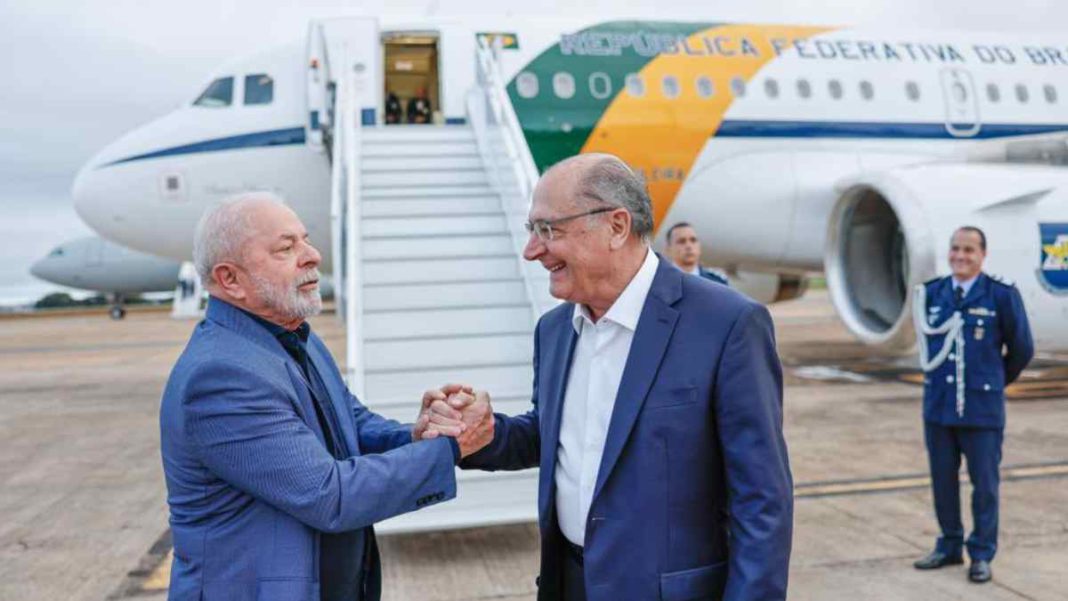BRAZIL: Brazilian President Luiz Inácio Lula da Silva departed Brazil for an official trip to China on Tuesday, where he aims to persuade President Xi Jinping to convene a group of countries to arbitrate an end to Russia’s conflict with Ukraine.
Lula’s visit, which was delayed from March due to health concerns, aims to thaw relations with Brazil’s largest trading partner following a tense four years under his far-right predecessor, Jair Bolsonaro.
Lula is also pursuing reintegrating Brazil into the international arena after a time of relative isolation under Bolsonaro, who rejected his country’s traditional stance in multilateral forums and received criticism for failing to protect the Amazon rainforest.
Lula has stated that he will discuss a plan to mediate peace talks between Russia and Ukraine when he meets with Xi on Friday. French President Emmanuel Macron has been the only Western leader to praise this strategy.
“I am convinced that both Ukraine and Russia are waiting for someone else to say, ‘Let’s sit down and talk,'” Lula told reporters last week.
Lula put up a suggestion that a peaceful solution could be returning recently acquired territory—though not Crimea—an idea that Ukrainian president Volodymyr Zelenskiy has refused outright.
“For his initiative to advance, Lula needs China to send a message to Russia,” stated a European diplomat in Brasilia.
The diplomat, who spoke under the condition of anonymity, said: “Lula knows that China is the only country Russia will listen to,” adding that “people are waiting to see whether it gains some traction from other countries, like France and Germany.”
Celso Amorim, Lula’s foreign policy advisor, travelled to Moscow in March to promote peace talks, and on April 17, Sergei Lavrov, the Russian foreign minister, will make a trip to Brasilia.
Ahead of his arrival in Beijing, Lula will go to Shanghai to witness the inauguration of former Brazil President Dilma Rousseff as the head of the New Development Bank, which was founded in 2014 by the BRICS group of major rising economies—Brazil, India, China, Russia, and South Africa.
Lula’s trip to China was supposed to take place the last week of March but was postponed after he contracted pneumonia.
Lula will travel with a team of eight cabinet officials, including Environment Minister Marina Silva, and five governors from northeastern states of Brazil, including Bahia, where a Chinese consortium is constructing a record-breaking bridge.
Some 20 pacts to be inked include the creation of a sixth satellite in a joint programme that began in 1988 and will be used to monitor the Amazon, said Brazil’s foreign ministry.
Brazil is also anticipating China’s establishment of a fund to aid in the restoration of its forests and sustainable development in Brazil, including the production of green hydrogen, Silva said.
Brazilian aircraft manufacturer Embraer SA (EMBR3.SA) may finalise an agreement to sell 20 commercial planes to a Chinese airline, two people with knowledge of the situation said, ending the firm’s lack of new business in China following the 2016 closure of a joint venture at a factory in Harbin.
China surpassed the United States as Brazil’s leading trading partner in 2009 and is a significant market for Brazilian iron ore, soybeans, and oil. Brazil is currently the biggest recipient of Chinese capital in Latin America, steered by spending on high-tension electrical transmission lines and oil extraction.
During the Bolsonaro administration, many Chinese businesses put on hold their plans with the federal government and instead focused on doing business with state governments, particularly in the less developed northeast where Lula’s Workers Party is most powerful.
The China-Brazil Business Council, which anticipates consistent development in the upcoming years, claims that by 2021, Chinese companies’ investments in Brazil will have recovered to their 2017 levels.
Also Read: After a Far-right Uprising, Lula Dismisses the Chief of the Brazilian Army



